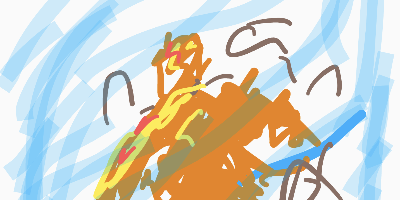1 gen 390 anni - Ammianus Marcellinus "Res Gestae"
Descrizione:
[ca. 354 CE] 1 While these events were taking place at Milan, troops of soldiers were brought from the East to Aquileia together with several courtiers, their limbs wasting in chains as they drew feeble breaths and prayed to be delivered from longer life amid manifold miseries (Ammianus Marcellinus, History, 15.3.1)[ca. 354 CE] But when they came to Aquileia, Marinus, an ex-drillmaster and now a tribune, who was on furlough at the time, the originator of that mischievous talk and besides a man of hot temper, being left in a tavern while things necessary for their journey were preparing, and chancing upon a long knife, stabbed himself in the side, at once plucked forth his vitals, and so died (Ammianus Marcellinus, History, 15.3.10)
[ca. 360 CE] Having arranged the plot by secret conferences and added to its strength by profound silence, on arriving at Aquileia, a well-situated and prosperous city, surrounded by strong walls, with hostile intent they suddenly closed its gates, supported in this revolt by the native population, because of the dread which was even then connected with the name of Constantius (Ammianus Marcellinus, History, 21.11.2)
[ca. 360 CE] 4 And so when Aquileia was surrounded with a double line of shields, it was thought best in the unanimous opinion of the generals to try, partly by threats and partly by fair words, to induce the defenders to surrender; but when after much debate to and fro their obstinacy became immensely greater, the conference ended without result (Ammianus Marcellinus, History, 21.12.4)
[ca. 360 CE] 16 When Julian, who was still wintering in Constantinople, heard from the report of Immo and his colleagues what had happened, he devised a shrewd remedy for the troubles; he at once sent Agilo, commander of the infantry, who was well known at that time, to Aquileia, hoping that the sight of so distinguished a man, and the announcement through him of Constantius' death, might put an end to the blockade (Ammianus Marcellinus, History, 21.12.16)
[ca. 360 CE] 17 Meanwhile, that the siege of Aquileia might not be interrupted, it was decided, since all the rest of their toil had come to nothing, to force a surrender of the vigorous defenders by thirst (Ammianus Marcellinus, History, 21.12.17)
[ca. 360 CE] But after him Romulus and Sabostius, senators of Aquileia, being convicted of having sown the seeds of discord without regard to its dangerous consequences, died by the executioner's sword (Ammianus Marcellinus, History, 21.12.20)
[ca. 362 CE] For it was announced by Agilo and Jovius, who was later quaestor, that the defenders of Aquileia, through weariness of the long siege and having learned of the death of Constantius, had opened their gates, come out, and surrendered the instigators of the revolt; that these were burned alive (Ammianus Marcellinus, History, 22.8.49)
[ca. 371 CE] 1 While the said general was panting through this dust of Mars throughout Mauritania and Africa, the Quadi, who had long been quiet, were suddenly aroused to an outbreak; they are a nation now not greatly to be feared, but were formerly immensely warlike and powerful, as is shown by their swift and sudden swoops in former times, their siege of Aquileia in company with the Marcomanni, the destruction of Opitergium, and many other bloody deeds performed in rapid campaigns; so that when they broke through the Julian Alps, the emperor Marcus Pius, of whom we have previously written, could with difficulty check them (Ammianus Marcellinus, History, 29.6.1)
[ca. 378 CE] 7 Then, as they went on, their courage was further broken when they beheld the oblong circuit of the walls, the blocks of houses covering a vast space, the beauties of the city beyond their reach, the vast population inhabiting it, and the strait near by that separates the Pontus from the Aegean; so the Goths destroyed the manufactories of warlike materials which they were preparing, and after suffering greater losses than they had inflicted they then departed and spread everywhere over the northern provinces, which they traversed at will as far as the foot of the Julian, or, as they were formerly called, the Venetic Alps (Ammianus Marcellinus, History, 31.16.7)
Aggiunto al nastro di tempo:
Data:
1 gen 390 anni
Adesso
~ 1636 years ago
